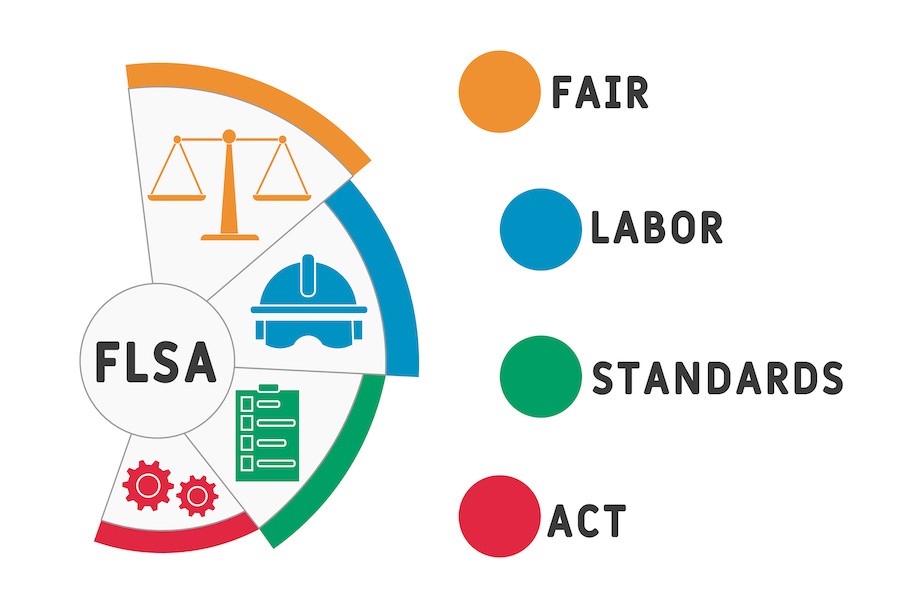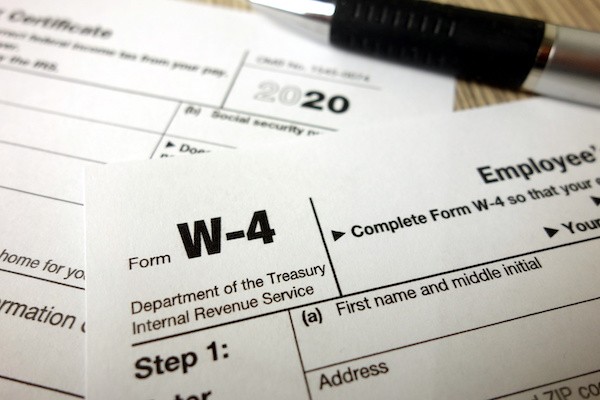
Professional Resume Writer, Career Writer and Career Coach
Unless you’re a seasoned HR vet, your knowledge of job classifications starts and ends with the words “part-time” and “full-time.” However, there’s another key categorization that’s worth knowing: exempt vs non-exempt. Which job type you choose will have a significant effect on not only how you’re paid, but how much you’re paid.
Below, we’ll discuss the difference between exempt vs non-exempt roles and a few things to consider before taking on a new role defined by these parameters.
Who is an Exempt Employee?
As the name implies, exempt employees are “exempt” from receiving overtime pay under the law. Employees under an exempt status are usually salaried rather than hourly, which means they must conduct a set amount of work instead of a set number of hours.
Basically, exempt employees do not qualify for minimum wage, and they do not receive overtime pay.
Who is a Non-Exempt Employee?
If you work a non-exempt job, you must be paid a minimum wage of at least $7.25 per hour according to the Fair Labor Standards Act, though these exact figures vary by state. Employers must compensate for anything over 40 hours per week at least 1.5 times your regular wage.
How to Classify Exempt and Nonexempt Employees
It is an employer’s responsibility to decide whether to classify a role as exempt or non-exempt. Employees are distinguish exempt vs non-exempt based on three tests:
- How much they are paid: Non-exempt employees are paid at least $684* per week paid on a salary or fee basis.
- How they are paid: Employees who are guaranteed a minimum wage/salary, regardless of the number of hours they work, are exempt (aka salaried).
- What type of work they do: Exempt job duties must be executive, professional, administrative, or computer duties. If this categorization sounds broad, it should. This is intentional to include almost all employees who would be classified as exempt based on how much and how they are paid. More on this below.
FLSA Exemption Test to Determine Exempt or Nonexempt Job

Until an employer can prove exempt status, all roles are automatically categorized as non-exempt. The FLSA uses five primary exemption tests to determine job status (after passing the salary threshold, of course):
- Executive test: For exempt status, the key responsibility of the role must include managing the company, a department, or a subdivision of the business. The person must also manage two or more employees and have the clearance to fire or hire employees.
- Administrative test: For exempt status, employees must execute office-related tasks required to manage business operations for employees, customers, or both. They’ll also have the authority to make significant and timely judgment decisions.
- Professional test: For exempt status, employees must be adept in their discretion and judgment-making abilities. They must have in-depth knowledge of science and learning earned through extensive specialization, extensive intellectual training, or instruction.
- Outside sales test: For exempt status, employees must work outside of the office executing safes and contracts for goods and services. They must work almost totally away from the business location, focusing on initiating and closing sales.
- Computer test: For exempt status, employees must work as a “computer programmer, computer systems analyst, software engineer, or another computer-skilled field.” Moreover, they must be vital in determining system specifications and instrumental in the design, documentation, development, and testing of computer systems or programs.
What’s the Difference Between Exempt and Nonexempt Employees

When searching for a job, you may wonder what’s the difference between a role that’s deemed exempt vs non-exempt. The biggest differences are in your pay, how often you work, how you’re paid, and how much you’re paid. Most exempt employees enjoy benefits like stable paychecks, benefits, and standard business hours (though they sometimes extend beyond 40 hours a week). If you work more than expected, you can’t be paid overtime.
For non-exempt employees, put a plus in the “pro” column for overtime eligibility and increased protections through government regulations, as you’ll be compensated for every hour worked. However, your work hours will vary, so budgeting can be hard with inconsistent paychecks. Plus, you may not be eligible for paid vacation or sick time.
Tax Liability Differences
The IRS taxes you whether you are working exempt or non-exempt. (We’ll save you from a “death and taxes” joke.) All pay is deemed “earned income” for both types of workers; therefore, it is taxable according to your tax bracket. Basically, income is income, and it doesn’t matter if you earned it by the hour or as an annual salary.
Overtime implications
Again, you’ll only get overtime pay if you are a non-exempt employee. While this may seem lucrative, companies have tight purse strings, and it often benefits the employee to keep non-exempt hours down to avoid such high payouts. For exempt workers, your pay is gifted for getting the job done, so your wages remain unchanged no matter if you work 38 or 52 hours per week.
Workers’ Rights and Benefit Implications
Under the law, technically, nonexempt employees are more protected. But reputable employers will treat both employee categorizations similarly. Safe and healthy work environments, equal employment opportunities, and the rights awarded under FMLA and federal child labor laws apply to both exempt and nonexempt workers.
Unemployment Implications
Exempt and nonexempt employees can collect unemployment benefits; however, the benefit details vary by state. Your state’s department of labor website can clarify unemployment access.
Salary Vs. Hourly Pay: Exempt vs. Non-Exempt
As we now know, pay is only one aspect of defining whether you are exempt or non-exempt. For example, you can earn a salary and still be classified as non-exempt. Remember those duties tests? If workers don’t meet a duty requirement and earn less than $684 per week, they may be eligible for overtime pay.
In turn, some hourly employees can be exempt because the exemption refers to the wage type, the compensation amount, and the duties they perform. Plus, hourly employees working in movie theaters, agriculture, and railroads are also exempt from receiving overtime under FLSA rules.
Which One is Better for You: Exempt vs. Non-Exempt
Similar to comparing part-time versus full-time jobs, deciding whether to prioritize exempt or non-exempt statuses ultimately depends on what’s most important to you. There’s consistency in exemptions. You’ll get the same salary every pay period regardless of the quantity (or quality) of work performed. If you’re someone that works quickly and can manage your time appropriately, exempt positions may be a wise target. But remember, finishing that report on a Friday evening won’t earn you any bonuses.
If you’re more apt to pick up a few extra shifts for more cash, then non-exempt jobs are for you. Since non-exempt employees are paid for every hour they work, your time is worth money. However, time-tracking is a large part of non-exempt jobs. Don’t expect to hang out by the water cooler or scroll through your phone outside designated breaks.
Frequently Asked Questions on Exempt vs. Non-Exempt

1. Does an exempt employee have to work 40 hours a week?
A 40-hour per week schedule is the norm for salaried employees, but exempt employees often work more than that, as the role’s goals and objectives require. Employers could also require you adhere to a specific schedule for various reasons.
2. What are the duties test for exempt employees?
In addition to the salary test, an exempt employee must meet one of the five duties tests, which are executive, administrative, professional, outside sales, and computer employees.
3. Can you require exempt employees to work certain hours?
There are no laws that limit the number of hours a person can work. Actually, employers can legally require exempt employees to work a specific schedule or a certain number of hours per week. While employees cannot have their pay decreased if they fail to adhere to the rules, employers can address it in other ways (e.g., disciplinary action or termination).
4. How do you calculate overtime for employees in non-exempt job classifications?
The overtime rate for hourly non-exempt employees is one and a half times the hourly rate. Therefore, if an administrative assistant is paid $17 per hour, then their employer pays them $25.50 for every hour worked beyond 40 hours each week.
5. How is overtime calculated for dual appointments?
Commonly, employers may pay workers more than one pay rate for different roles. If working dual appointments, employers can choose to calculate overtime pay on the hourly rate of the higher-paying appointment only or opt for a blended method. This means the overtime is based on the weighted average of all rates.
6. How is overtime paid with multiple appointments?
The law places no limits on the number of appointments you can hold. Some employees may work in more than one position for the same employer, such as two part-time jobs. In this instance, an employer must pay overtime using whatever rate applies to the work being performed when the overtime occurs, and the employer must have an agreement with the employee (before starting the work, and ideally in writing).
The Takeaway
As with all types of employment, there’s a give and take. Exempt vs. non-exempt jobs are no exception. Take a moment to consider what your time is worth and how flexible you want your next gig to be. As always, the key to landing a successful new job is to be diligent. Ask detailed and specific questions about how your potential employer defines their roles and listen closely before accepting any offer.
While a job title doesn’t automatically distinguish exempt vs non-exempt status, some job titles tend to be one or the other. Take a look at some common exempt and non-exempt job openings on Job\Searcher.
Exempt Jobs Examples
Non-Exempt Job Examples
- Freelancers
- Interns
- Contractors
- Retail Associates
- Restaurant Servers
- Clerks
- Receptionist
- Bookkeeper






